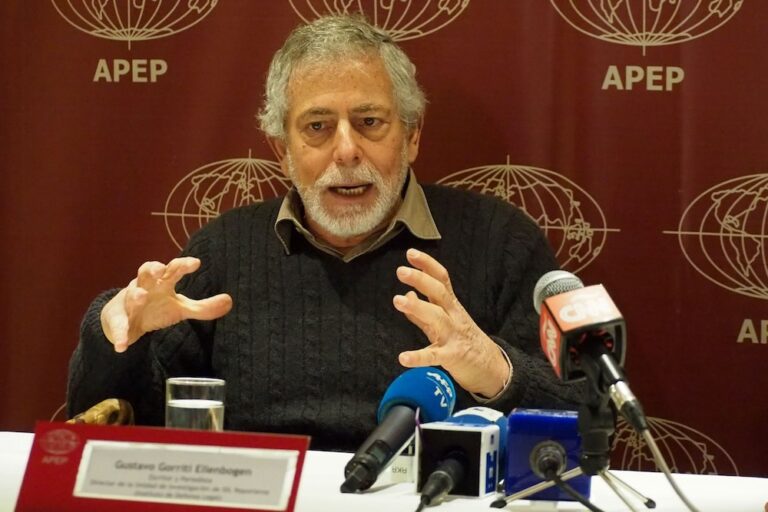On 11 September 1996, Minister of Justice Carlos Hermoza Moya backed down and corrected statements that he had made the previous day in which he asked the Public Prosecutor’s Office to take measures to block the circulation of pornographic material. Hermoza had stated that the Office should block the sale in kiosks of erotic and […]
On 11 September 1996, Minister of Justice Carlos Hermoza Moya
backed down and corrected statements that he had made the
previous day in which he asked the Public Prosecutor’s Office
to take measures to block the circulation of pornographic
material.
Hermoza had stated that the Office should block the sale in
kiosks of erotic and pornographic newspapers and magazines so
that further violations of and crimes against young children no
longer occur, and because “[these publications] damage the moral
health of the people.” He stressed the need for banning such
publications, since they are always for sale and within the reach
of anyone, including minors. Moreover, he said, they heighten the
sexual appetite of child molesters. Hermoza added that such
measures would not constitute an attack on press freedom, since
the publication of such material would not be considered as the
exercise of press freedom.
After Hermoza’s initial comments, congressmen of varying
political stripes expressed their disagreement with Hermoza’s
proposal, calling unconstitutional the use of the Public
Prosecutor’s Office to ban the sale of erotic and pornographic
newspapers and magazines. Jorge Avendano, of the “Union por el
Peru”, stated that the Public Prosecutor’s Office would not need
to ban them since it could simply resort to invoking current
legislation under the Penal Code, also set out in the
Constitution, which states that crimes against “honour” committed
by the press are punishable offences. Antero Flores Araoz of the
Partido Popular Cristiano pointed out that the measures would
constitute an attack on press freedom and freedom of expression
as well as a serious threat to the professional viability of the
media. He mentioned that Article 183 of the Penal Code makes it a
crime for anyone who exposes, or puts into the possession of,
children under 14 years words or images that, because of their
obscene nature, could damage that child’s well-being.
In a communique sent 11 September, the National Journalists
Association of Peru (ANP) expressed its discomfort with Hermoza’s
comments by saying that they could set a dangerous precedent for
undermining freedom of expression. ANP added that it is up to the
owners and editors of these publications to determine their
journalistic ethics; they should police their own editorial
policy so that the public retains the right to information which
is objective, honest and responsible. The moral predicament which
exists in Peru, emphasised ANP, cannot be remedied with coercive
actions which in both Peru and elsewhere have hindered the
functioning of an independent press.
On 11 September, apparently due to the widespread criticism,
Hermoza corrected his comments of the previous day by stating
that the media themselves should regulate their content so as to
avoid the circulation of pornographic material. He also made it
clear that his comments about pornographic publications were
directed “at those magazines or booklets which are circulated
clandestinely at stalls throughout the streets of Lima.”
Recommended Action
Send appeals to the Minister of Justice:
of information as set out in Article 2 of the Constitution which
states that it “is deemed criminal any action which suspends or
silences any means of expression or prevents it from circulating
freely”
Appeals To
Sr. Carlos Hermoza Moya
Minister of Justice
Ministry of Justice
Lima, Peru
Fax: +511 4417320 / 4223577
Copies to:
Ing. Alberto Fujimori Fujimori
President
Palacio de Gobierno
Plaza de Armas
Lima 1, Peru
Fax: +511 4266770 (or +511 4266535 via presidential press office)
Dra. Blanca Nelida Colan Maguino
Public Prosecutor
Lima, Peru
Fax: +511 4264429 / 4262474
Please copy appeals to the originator if possible.


